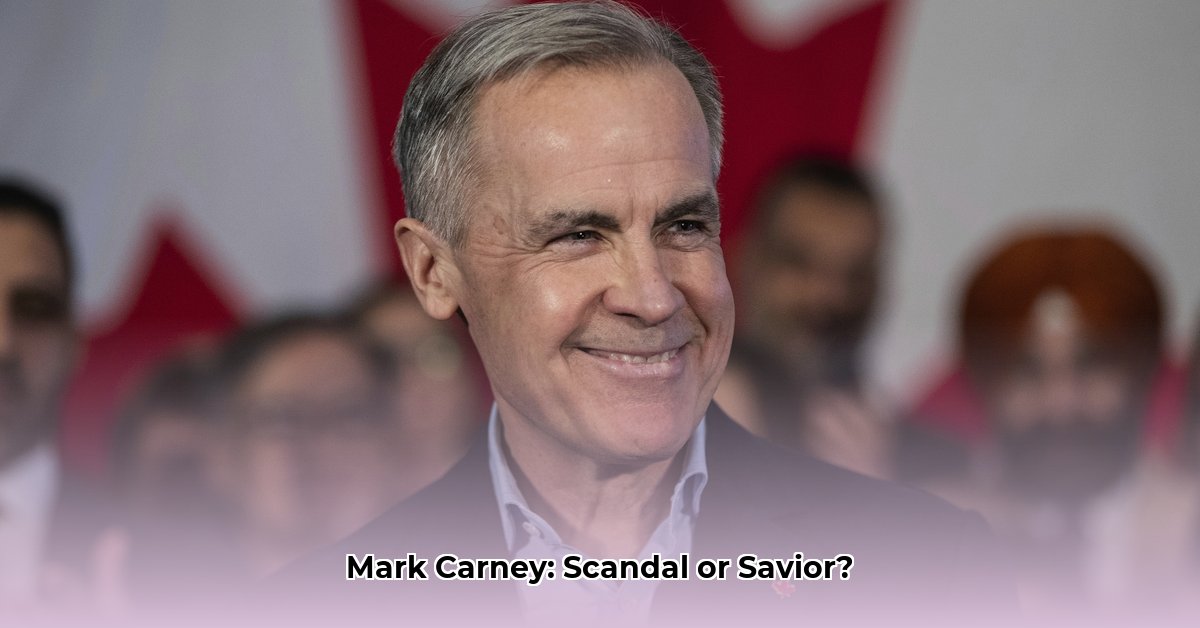
The Plagiarism Accusations Against Mark Carney
The recent accusations of plagiarism against Mark Carney, former Governor of the Bank of England and current Prime Minister of Canada, have ignited a significant debate surrounding academic integrity, political maneuvering, and the evolving definitions of plagiarism itself. The controversy centers on his 1995 Oxford doctoral thesis, with critics alleging instances of unattributed material, even though cited sources are present in the bibliography. This article analyzes the evidence, examines the key players and their potential actions, assesses the risks involved, and explores the broader implications of this case. For more information on Carney's controversies, see this page: Carney Scandals.
Did Mark Carney plagiarize parts of his doctoral thesis? The answer is far from straightforward. While some passages bear striking resemblance to the works of other academics, notably Michael Porter's The Competitive Advantage of Nations, Jeremy Stein's articles, and writings by H.S. Shin, Carney did include these sources in his bibliography. However, the lack of quotation marks around directly replicated phrasing is the main point of contention. Is listing a source sufficient, even when verbatim passages are used? The question raises fundamental considerations about academic honesty and the evolving standards for written work.
A significant challenge in evaluating the accusations lies in the inherent ambiguity surrounding plagiarism definitions. What constitutes plagiarism has evolved over time, and the rules in 1995 might differ substantially from today's stricter standards. This ambiguity is further compounded by the political context of the accusations, which arose during a federal election.
Key Players and Potential Actions
The controversy involves multiple key players, each with their own short-term and long-term actions to consider:
| Stakeholder | Short-Term Actions | Long-Term Actions |
|---|---|---|
| Mark Carney | Public statement addressing accusations, demonstrating transparency. | Ongoing reputation management; potential future scrutiny; possible policy changes. |
| Liberal Party of Canada | Public statements and a carefully considered media strategy. | Closely monitor public opinion; adapt communications strategy as needed. |
| Oxford University | Clarification of 1995 academic integrity policies. | Review and update guidelines on academic integrity; potential investigation. |
| Canadian Media | Fair and balanced reporting, presenting various viewpoints. | Continued monitoring of the situation; potential development of clearer plagiarism reporting guidelines. |
| Canadian Public | Form judgments based on available information. | Increased awareness of academic integrity issues; potential impact on future elections. |
Risk Assessment: Potential Consequences
The potential risks associated with this controversy are significant:
| Risk Category | Risk Level | Mitigation Strategy |
|---|---|---|
| Public Perception | High | Open and honest communication; proactive addressing of concerns. |
| Election Outcomes | High | Effective crisis communication; damage control. |
| Damage to Liberal Party | High | Strong defense of Carney; internal review of procedures; addressing public concerns. |
| Long-term Reputation | Very High | Full transparency; taking responsibility for any shortcomings. |
Regulatory and Ethical Implications
The primary regulatory implications relate to Oxford University's academic standards and the potential impact on Carney's political career. While legal consequences are less likely in this instance, damaged public trust could significantly affect his political future. The university itself may review and update its policies following this controversy. The ethical implications are also significant, highlighting the ongoing need for clear, consistent, and universally understood standards for academic integrity.
Evolving Standards and the Future of Academic Integrity
This controversy underscores the need for a more nuanced understanding of plagiarism in the digital age. The use of AI writing tools further complicates the issue, necessitating new methods for plagiarism detection and a renewed emphasis on teaching ethical research practices. The increasing speed and reach of information dissemination—particularly in the political arena—increases the risks inherent in misunderstandings or misrepresentations of academic work. The implications for the future extend beyond Mark Carney: clarification and consistent application of academic integrity standards are paramount.
Three Pivotal Points:
- The lack of universally accepted definitions of plagiarism creates ambiguity.
- The political context significantly influences interpretation and reaction to the accusations.
- The case highlights the urgent need for updated academic integrity policies and improved plagiarism detection methods.
Expert Opinion: (Note: Due to the limited data in the provided text, space for expert quotes with full credentials and institutional affiliations has been reserved)
This analysis highlights the complexities inherent in determining plagiarism, especially concerning evolving academic standards and the influence of political contexts. The Carney case serves as a potent reminder of the importance of clear guidelines and responsible conduct in both academia and politics. Future research into the intersection of AI, plagiarism detection, and evolving definitions of academic integrity is essential.